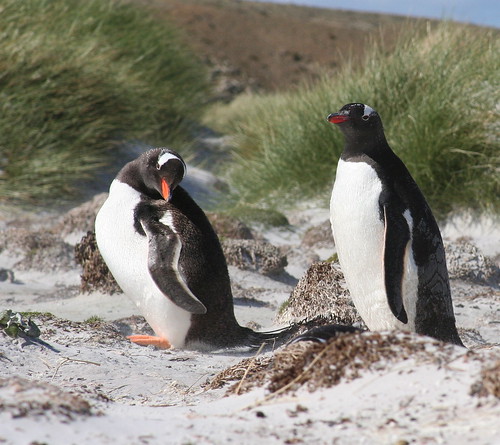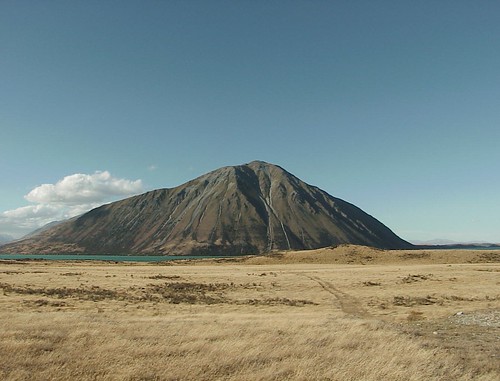
For two weeks in late November and early December, diplomats, environmentalists, and journalists from around the world will meet in Doha, Qatar, for COP18, the latest round of United Nations climate change talks. A contingent of students from the Yale School of Forestry and Environmental Studies is attending the conference and reporting on the negotiations. Will the conference produce a powerful new treaty to curtail global carbon emissions? Or will yet another round of UN talks go up in flames? Follow all the action here, at Sage’s COP18 Blog.
***
Carrying the Torch: Yale’s Role at COP18
By Alexander Vernoit

Yale President Richard C. Levin once asked, “How do we prevent the continued consumption of fossil fuels from warming our planet to the point that ecosystems are destroyed, food supplies are threatened, and rising sea levels force hundreds of millions to relocate?”
Last month in Doha, the world sought to find an answer at the 2012 United Nations Climate Change Conference, or COP18. And a sizeable delegation from Yale was present to address the question. Read more…
“We Are All Neighbors With Joined Doors”: Climate Justice and the UNFCCC
By Rebeka Ryvola
Deep within the bizarre landscape of minarets, oil refineries that stretch out into the sandy horizon, and a wildly ad hoc, opulent, and strangely 1970’s-going-on-the-future skyline, the annual UNFCCC conference moves along in its second week. In these last days of COP 18, much still remains open and on the table. It appears that there will be a second commitment period to the Kyoto Protocol, but what will it look like? Progress on the Durban Platform inches forward – but will any solid groundwork be laid for the 2015 climate agreement? Overall, ambition throughout this COP has been extremely low, with only the most vulnerable nations pressing for fast and dramatic action. Read more…
The Hunt for Accountability, From Rio to Doha
By Yiting Wang
Before I started my graduate studies in August, I was campaigning incessantly with the Natural Resources Defense Council (NRDC) to drive the Rio+20 Earth Summit process towards real actions and accountability. I am carrying on the same mission to the UN Climate Conference in Doha with fellow students from Yale, but with a new tool at hand – a smartphone and web app called DecisionMakr – to crowdsource accountability. Read more…
Paleo-What?: Introducing the Ancient Climate Record into Modern Negotiations
By Eli Mitchell-Larson, Dec. 2
As the COP18 in Doha cranks along into its second week, onlookers follow the proceedings and ponder how the results of continued negotiation will affect them. Frustrated environmental activists bemoan the slow progress made by the UNFCCC over the past two decades and call for more ambitious action, industry groups look out for any changes in emissions reduction targets or country stances that will affect their bottom line, and journalists search for stories amid a mass of bureaucratic wrangling.

But as heads-of-state, negotiators, and observers come and go from air-conditioned plenary rooms and corporate hotels, the earth continues to cycle carbon, heedless of the political quagmire that has plagued climate negotiation since the UNFCCC was drawn up in 1992. Read more…
New Zealand’s Ultimate COP-Out of the Kyoto Protocol
By William Miao, Dec. 1
New Zealand’s government announced in a statement on Nov.9 that it is not in the country’s interests to be “stuck in the Kyoto space for another eight years,” only a few weeks before nations met in Doha for the next round of climate negotiations. Like most Kiwis, I pride myself with New Zealand’s commitment to a “100 percent green and clean image.” But after hearing this latest news, I have never felt so embarrassed to be a New Zealander. For me, this disappointing decision reflects a failure not only by our policy-makers, but also negligence and indifference on the part of my fellow Kiwis to push our leaders for more leadership on climate change.

While New Zealand’s scorecard on international environmental treaties has consistently been far from satisfactory, especially after the recent embarrassment of being caught as the only country to oppose the protection of its own endangered Maui dolphin, it has now joined a host of countries that have also retreated from the Kyoto Protocol – the only internationally-binding agreement that addresses climate change. Read more…
A new smart phone app seeks to hold climate negotiators accountable
By Aaron Reuben, Nov. 29
This week negotiators from around the world will meet in Doha, Qatar to once again hem and haw their way through an international climate conference. Though we can expect the usual commitment dodging and grandstanding from the world’s leaders, assembled onlookers hoping to hold their representatives accountable will have a new tool in their arsenal this year: a smart phone app.
[embedplusvideo height=”300″ width=”430″ standard=”http://www.youtube.com/v/Z9aybH1glYw?fs=1″ vars=”ytid=Z9aybH1glYw&width=430&height=300&start=&stop=&rs=w&hd=0&autoplay=0&react=1&chapters=¬es=” id=”ep9344″ /]
DecisionMakr, a new smartphone and web app that will launch at Doha, allows Twitter users to rate negotiators and decision-makers in real-time on the quality of their proposals and the merit of their statements in meetings. The goal, said Angel Hsu, who designed the app with Pariveda Solutions, is to give decision-makers real-time feedback in a way that may allow civil society to participate more actively in negotiations. Read more…
A Garden in the Heart of Doha
By Adedana Ashebir, Nov. 29
I was one of many surprised when Qatar was chosen to host this year’s Conference of the Parties. Qatar is the world’s largest liquefied natural gas producer and home to the world’s third-largest natural gas reserves. The country’s pro tennis tournament is the Qatar ExxonMobil Open. An OPEC member chairing a climate change conference? Simply put, carbon has made modern Qatar what it is today. Sixty percent of the nation’s GDP comes from oil and natural gas. Due to high prices and increased output, the country is booming. Read more…
